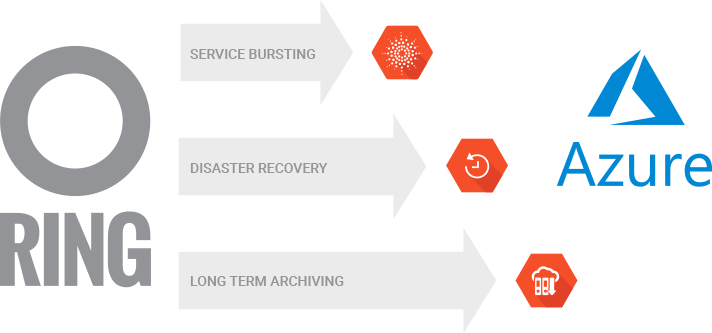Scality is enabling enterprises to extend solutions on Microsoft Azure including Azure Stack Hub and Azure Stack Edge, with scale-out storage and data orchestration. Developed by Scality in collaboration with Azure, Scality is introducing native Azure Blob API front-end connectivity to both RING and Zenko. Through their collaboration, Scality and Microsoft are enabling hybrid cloud, private cloud and edge solutions that combine advanced Azure compute and data services with petabyte-scale on-premises storage.
The digital economy, the Internet of Things and edge computing are driving an explosion of data, as well as the need to move cloud services closer to the source of this data. Enterprises are addressing these needs by combining the power of on-premises solutions from public cloud providers with complementary storage solutions. Azure Stack Hub and Azure Stack Edge are on-premises extensions of Azure that allow enterprises to consistently build and run hybrid applications across cloud boundaries. When these applications require petabyte-scale storage, especially in disconnected or air-gapped deployments, Scality RING can be deployed to provide scale-out storage.
Since 2017, Zenko has supported Azure Blob Storage as a back-end storage location for hybrid cloud use cases. Today’s announcement extends Scality’s support for Azure by enabling applications and platforms with client-side support of the Azure Blob Service REST API to use Scality RING as a backend storage location. This new functionality means that Scality RING can provide essentially unlimited storage capacity for Azure edge solutions such as Azure Stack Hub and Azure Stack Edge.
“Customer interest in hybrid cloud and edge deployments is increasing, and we see a market need for Azure edge solutions with scale-out storage support,” said Tad Brockway, Corporate Vice-President, Azure Storage, Media, and Edge, Microsoft Corp. “We are glad to see Scality enable their products to support Azure Blob storage for a range of hybrid cloud and edge storage use cases.”
Azure Stack Hub and Scality RING are available through leading IT solution providers such as HPE, Cisco, and others.
Software-defined Scality RING storage turns any standard x86 server into highly-expandable storage. It scales without limits and guarantees 100 percent availability—all while reducing costs by as much as 90 percent compared to legacy systems. Scality RING is deployed by petabyte-scale customers around the world. It features native file protocols and high-fidelity object storage APIs, data encryption, volume and bucket data protection, data-restorative versioning, extended location control for data sovereignty, and geo-replication for disaster recovery for customers requiring ironclad data protection.
Zenko provides global data visibility, orchestration, and governance by providing a single interface to manage on-premises and cloud storage simultaneously. Supporting Scality RING, other on-premises object systems, on-premises NAS systems, and public clouds including Azure, Zenko enables data workflows between disparate storage systems.




